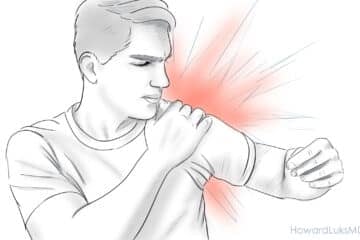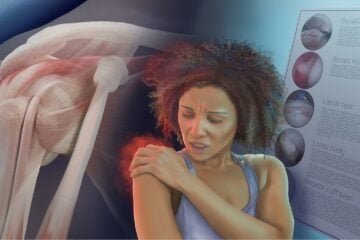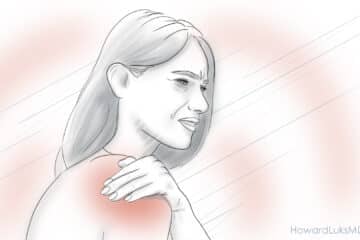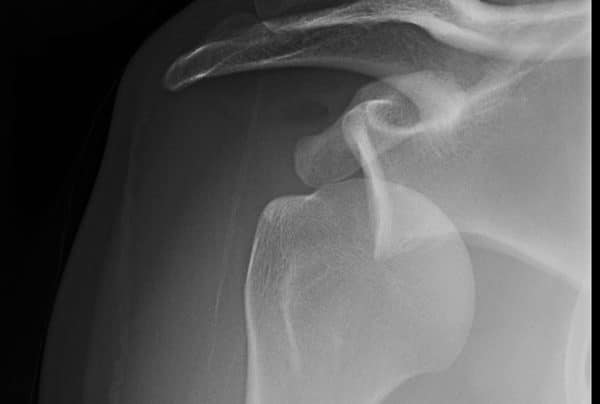
A dislocated shoulder usually occurs from sports or a traumatic injury. Most shoulder dislocations occur from falling onto the arm, or after being struck hard on the shoulder.
The shoulder is a ball and socket joint. After a shoulder dislocation occurs, you run the risk of have another dislocated shoulder. We refer to this as recurrence. Your risk of having a recurrent dislocation depends on your age, and the degree of damage which occurred at the time of the dislocation. In the video below Dr Jeff Berg and I discuss the treatment options available for a dislocated shoulder to diminish your risk of recurrence.
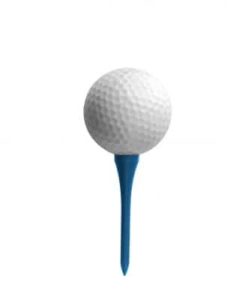
The shoulder is like a golf ball on a golf tee. It is a large round bone sitting on a much smaller socket. To help the ball of the shoulder stay in place there are a number of ligaments which hold the two bones together. In addition there is a cartilage disc we refer to as the labrum which is firmly attached to the socket and serves to decrease the chances that the ball rolls off the socket.
When a dislocated shoulder occurs you typically tear off the ligaments on the front of the socket. We call that a Perthes or Bankart lesion. In addition you may get a dent in the back of the humerus which we call a Hill-Sachs lesion.
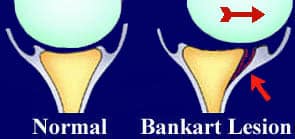
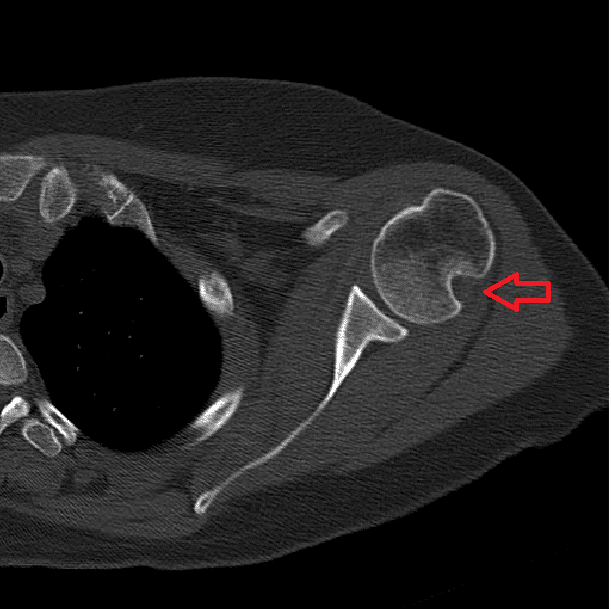
The reason why you remain at risk for another shoulder dislocation is because of the labral tear or Bankart lesion, as well as the dent in the bone, or the hill-sachs lesion. Depending on your age, after your first dislocation you may have up to a 30-50% chance of having another dislocated shoulder. If you are active in collision sports the risk is very high.
Treatment of a dislocated shoulder
The treatment of a dislocated shoulder will depend on your examination and what we see on your MRI. In high risk situations which include:
- rock climbers
- tree climbers
- elite collision sports athletes
… we will consider surgery after your first dislocation. If your first dislocation is managed without surgery and you go on to have a second or third dislocation we will almost always recommend surgery. Surgery can involve procedures to repair the labral tear and it can also include procedures to repair the dent in the back of the humerus. The right procedure for you might be different than the right procedure for someone else.
Take a look at the video about shoulder dislocations below. We go into how your Orthopedic Surgeon will be determining what is the best treatment for your dislocated shoulder.


